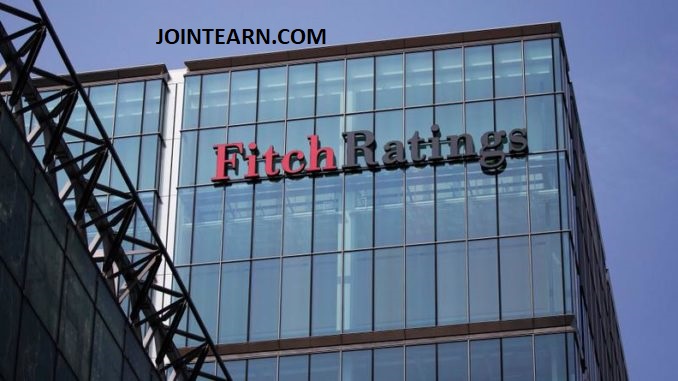As the global economy faces shifting dynamics and emerging challenges, investors have emphasized the need for increased capital deployment within local economies to stimulate growth and ensure long-term financial stability. In a recent series of engagements, prominent investors and business leaders called for both public and private sector initiatives aimed at boosting investment levels across various sectors, including infrastructure, technology, and energy.
The growing consensus among investors is that economies, particularly in developing nations, must ramp up capital inflows to meet the demands of rapidly changing markets and global competition. According to the investors, strategic and well-structured capital investments will create job opportunities, enhance industrial output, and ultimately improve the quality of life for citizens.
A crucial aspect of this discourse revolves around the role of both domestic and foreign capital in supporting economic transformation. Over the past few years, many developing economies have witnessed significant capital flight, primarily due to political instability, unfavorable policies, and external economic shocks such as the COVID-19 pandemic. In response, industry leaders and stakeholders have been advocating for a more favorable investment climate that can attract substantial foreign direct investment (FDI) while also leveraging local capital markets to encourage home-grown economic development.
At a recent conference held by the Global Investment Forum, key players from various sectors outlined the importance of fostering an environment conducive to increased investment. Several proposals were put forward, emphasizing regulatory reforms, tax incentives, and infrastructure development as pivotal factors that could boost investor confidence and lead to an inflow of much-needed capital.
“Capital deployment is not just about putting money into the economy; it is about ensuring that the funds are channeled into projects that will yield sustainable results,” said one investor, who requested anonymity due to the sensitivity of the discussions. “Investors are looking for markets with long-term stability and policies that favor growth. Without clear frameworks, it becomes difficult to attract and retain capital.”
In particular, experts have highlighted the potential of sectors such as renewable energy, technology, agriculture, and manufacturing to benefit from strategic capital injection. With a growing global emphasis on sustainability, renewable energy projects—ranging from solar farms to wind energy initiatives—have gained significant interest from investors keen on aligning their portfolios with eco-friendly and socially responsible ventures.
Technology, on the other hand, remains one of the most lucrative sectors for capital deployment, especially in markets undergoing digital transformation. Investments in fintech, e-commerce, and digital infrastructure are seen as critical in harnessing the potential of the digital economy. Investors have noted that increased capital flow into these sectors could foster innovation, improve access to financial services, and bridge the gap in technological access, especially in underserved regions.
The agricultural sector, traditionally viewed as the backbone of many developing economies, also stands to benefit from targeted capital infusion. Investors see agricultural modernization and value-added processes as key to improving food security, generating exports, and creating millions of jobs. By deploying capital into agricultural technology, processing, and logistics, economies can unlock the sector’s full potential and enhance its contribution to the broader economic landscape.
To achieve these objectives, investors are urging governments to create an enabling environment through policy reforms. Among the key recommendations is the simplification of regulatory processes, including easing the approval of permits and licenses for major investment projects. In addition, the removal of trade barriers and tariffs that hinder the free flow of goods and services across borders is also viewed as a necessary step.
Tax incentives, including reduced corporate taxes for companies that reinvest their profits in key sectors, are also considered crucial in stimulating long-term investments. The introduction of investment-friendly legislation that protects intellectual property, strengthens contract enforcement, and ensures fair competition is also recommended to foster a stable investment climate.
In a related discussion, representatives from international financial institutions echoed the need for enhanced capital deployment, particularly in emerging markets. “The global economy is shifting towards emerging economies as centers of growth. However, to fully capitalize on this trend, these nations must prioritize investments that can generate lasting value for their citizens and create competitive advantages,” said a senior official from the International Finance Corporation (IFC).
The role of public-private partnerships (PPPs) in driving capital deployment was also underscored during these discussions. Governments, in collaboration with the private sector, can pool resources for large-scale infrastructure projects that can catalyze other areas of the economy. By establishing clear frameworks for PPPs, governments can ensure the smooth execution of infrastructure projects and encourage private sector participation.
One area where increased capital deployment is particularly urgent is in the creation of jobs. The World Bank has repeatedly emphasized that job creation, particularly for the youth population, is one of the most significant challenges facing developing nations. Investors believe that through increased capital deployment, especially in labor-intensive sectors, economies can generate the millions of jobs needed to combat unemployment and underemployment.
The potential for capital deployment to positively impact the economy is vast, but it requires the concerted efforts of both governments and private investors to ensure that funds are deployed effectively. Experts agree that while significant challenges remain, a concerted effort to reform policies and promote investor confidence can lead to transformative outcomes for economies worldwide.
As the global economy continues to evolve, the push for increased capital deployment remains a pivotal factor in securing sustainable economic growth. Through collaboration, innovation, and smart investment strategies, countries can unlock new opportunities and improve the standard of living for their populations.












